17 start with L start with L


Roley’s work has been praised by everyone from New York Times literary critics to APIA author Helen Zia for his bare, poetic style and raw emotionalism. In the collection’s title story, a woman living with her daughter and her daughter’s American husband fears the loss of Filipino tradition, especially Catholicism, as she tries to secretly permeate her granddaughter’s existence with elements of her ancestry. In "New Relations," an American-born son introduces his mother to his Caucasian bride and her family, only to experience his first marital discord around issues of politesse, the perception of culture, and post-colonial legacies. Roley’s delicately nuanced collection often leaves the audience with the awkwardness that comes from things lost in translation or entangled in generational divides.

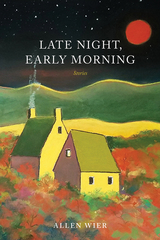
While Allen Wier is perhaps best known as a prizewinning novelist, he is also a master of the short story, an art he has perfected over four decades. Late Night, Early Morning contains twenty-two of Wier’s tales: the stories in his first collection (Things About to Disappear), six uncollected stories, and seven stories that became part of his four novels. Richly textured and often lyrical, with intense images and diverse subjects, these stories feature indelible characters who imprint themselves onto readers’ minds. A man with no family finds the abandoned corpse of an infant and adopts the dead baby as his son. A Texas laborer, while repairing hen houses, learns that the stench of the egg ranch is the smell of money. In 1862 Louisiana, a runaway slave comes face to face with a white sharecropper’s wife who may turn him in, but something unexpected momentarily unites them. An American widow in Mexico as a photographer meets a florist from Texas who widens her angle of view. After discovering an underground cavern, a man lives his entire life in an imagined world shaped from stalactites and stalagmites.
Allen Wier’s skillfully written and compassionate stories reveal the shimmering moments in day-to-day life

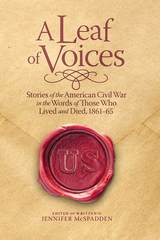


James Magruder’s collection of linked stories follows two gay cousins, Tom and Elliott, from adolescence in the 1970s to adulthood in the early ’90s. With a rueful blend of comedy and tenderness, Magruder depicts their attempts to navigate the closet and the office and the lessons they learn about libidinous coworkers, résumé boosting, Italian suffixes, and frozen condoms. As Tom and Elliot search for trusting relationships while the AIDS crisis deepens, their paths diverge, leading Tom to a new sense of what matters most. Magruder is especially adept at rendering the moments that reveal unwritten codes of behavior to his characters, who have no way of learning them except through painful experience.
Loss is sudden, the fallout portrayed with a powerful economy. In Tom and Elliott, readers come to recognize themselves, driven by the same absurd desires and unconscious impulses, subjected to the same fates.


Drawing on Bahktinian and feminist theory, Sawin pushes forward our understanding of the interactive roles of ethnographer and subject and in the process gives us a deeper understanding of folk singer and storyteller Bessie Eldreth and her greatest art, herself.
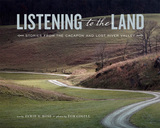
Although still rural and mostly forested, development and land fragmentation in the Cacapon and Lost River Valley have increased over the last decades. Listening to the Land: Stories from the Cacapon and Lost River Valley is a conversation between the people of this Valley and their land, chronicling this community’s dedication to preserving its farms, forests, and rural heritage.
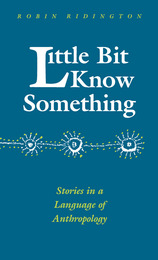

In a career that spanned over 60 years, George Moskovita met with many maritime adventures, recounted for the reader in a clear, direct, and unsentimental style. He saw the fishery he had helped build devastated by foreign factory processing ships. He bought, repaired, traded, and sank more boats than most fishermen would work on in a lifetime. Along the way, he managed to raise four daughters with his wife, June. The name of one of his last boats, the Four Daughters, reflects the central importance of family life to a man who was often at sea. Moskovita’s memoir provides a unique glimpse of Pacific maritime life in the 20th century, small-town coastal life after World War II, and the early days of fishery development in Oregon.
With an introduction and textual notes by Carmel Finley, an historian of science, and Mary Hunsicker, an aquatic and fisheries scientist, this book will be invaluable to fishery students and professionals interested in the biology, ecology, and history of oceans and commercial fishing. It will also have broad appeal to readers of Oregon history and maritime adventure, and anyone else who has ever stood at the western edge of the continent and wondered what life was like at sea.
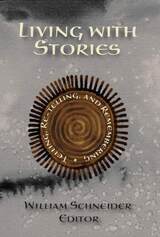

A runaway circus lion haunts a small town where two lovers risk more than their respective marriages. A junket to Cuba and an ambassador’s dalliance with a niece hide dark secrets and political revolution. “I’ve always had a knife,” says the unstable stepson to his parents. Inventive, dark, and absurd, the stories in The Long Swim capture Terese Svoboda’s clear-eyed, wry angle on the world: a place of violence and uncertainty but also wild beauty, adventure, and love both lasting and ephemeral. Her characters strive for escape—through romance, travel, or more self-destructive pursuits—and collide with the constraints of family and home, their longing for freedom and autonomy often at odds with the desire for safety and harmony.
Cynical, irreverent, and formally daring, Svoboda’s stories in The Long Swim are a deft exploration of womanhood and humanity. Waves of provocation and wonder toss the reader and leave them wanting more.
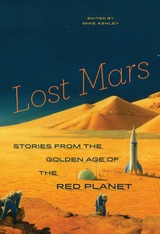
An antique-shop owner gets a glimpse of the Red Planet through an intriguing artifact. A Martian’s wife contemplates the possibility of life on Earth. A resident of Venus describes his travels across the two alien planets. From an arid desert to an advanced society far superior to that of Earth, portrayals of Mars have differed radically in their attempts to uncover the truth about our neighboring planet.
Since the 1880s, after an astronomer first described “channels” on the surface of Mars, writers have been fascinated with the planet, endlessly speculating on what life on Mars might look like and what might happen should we make contact with the planet's inhabitants. This wonderful collection offers ten wildly imaginative short stories from the golden age of science fiction by such classic sci-fi writers as H.G. Wells, Ray Bradbury, and J. G. Ballard, as well as hard-to-find stories by unjustly forgotten writers from the genre.
Assembled and introduced by acclaimed anthologist Mike Ashley, these stories vividly evoke a time when notions of life on other planets—from vegetation and water to space invaders and utopian societies—were new and startling. As we continue to imagine landing people on Mars, these stories are well worth revisiting as gripping and vivid dispatches from futurists past.
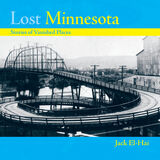
READERS
Browse our collection.
PUBLISHERS
See BiblioVault's publisher services.
STUDENT SERVICES
Files for college accessibility offices.
UChicago Accessibility Resources
home | accessibility | search | about | contact us
BiblioVault ® 2001 - 2024
The University of Chicago Press









